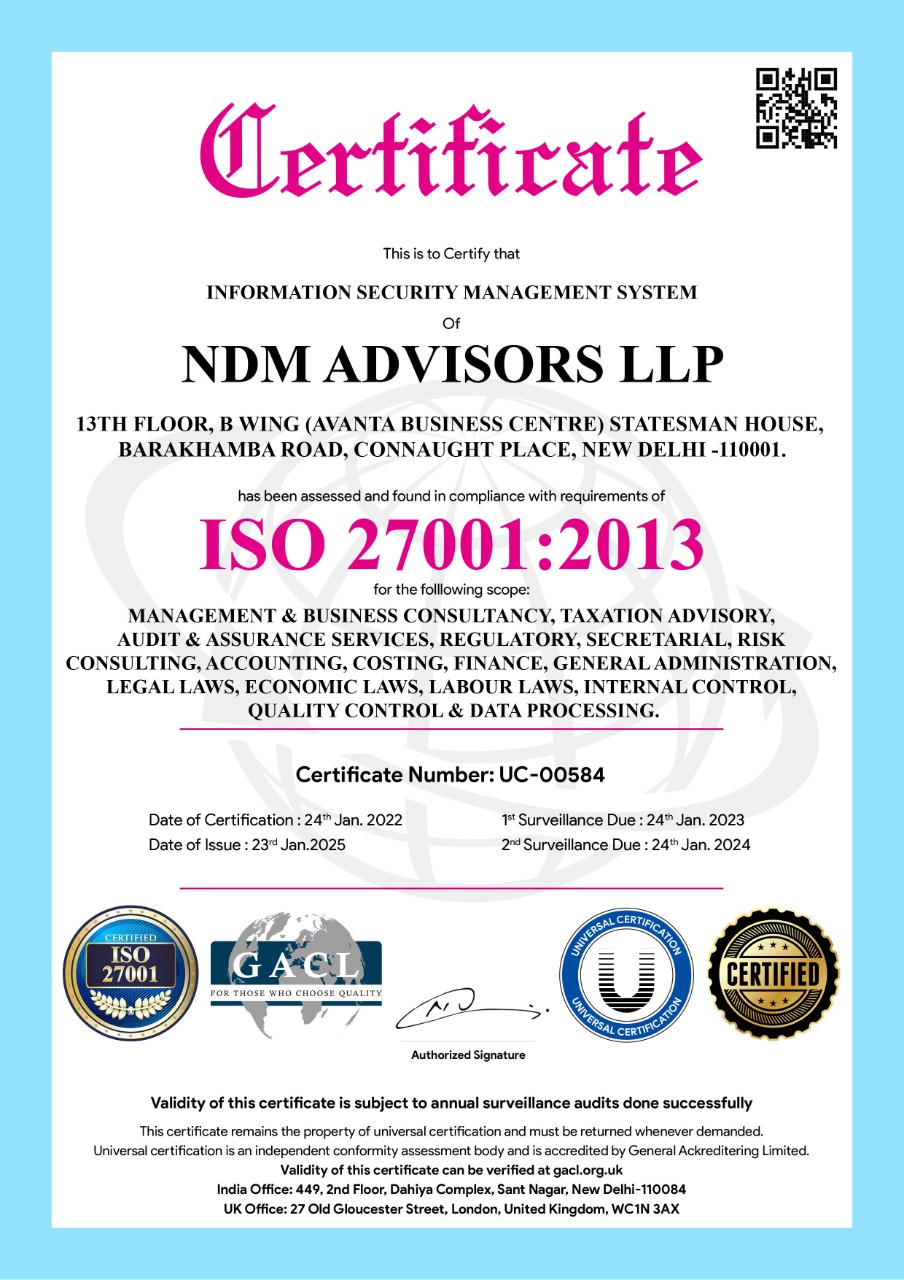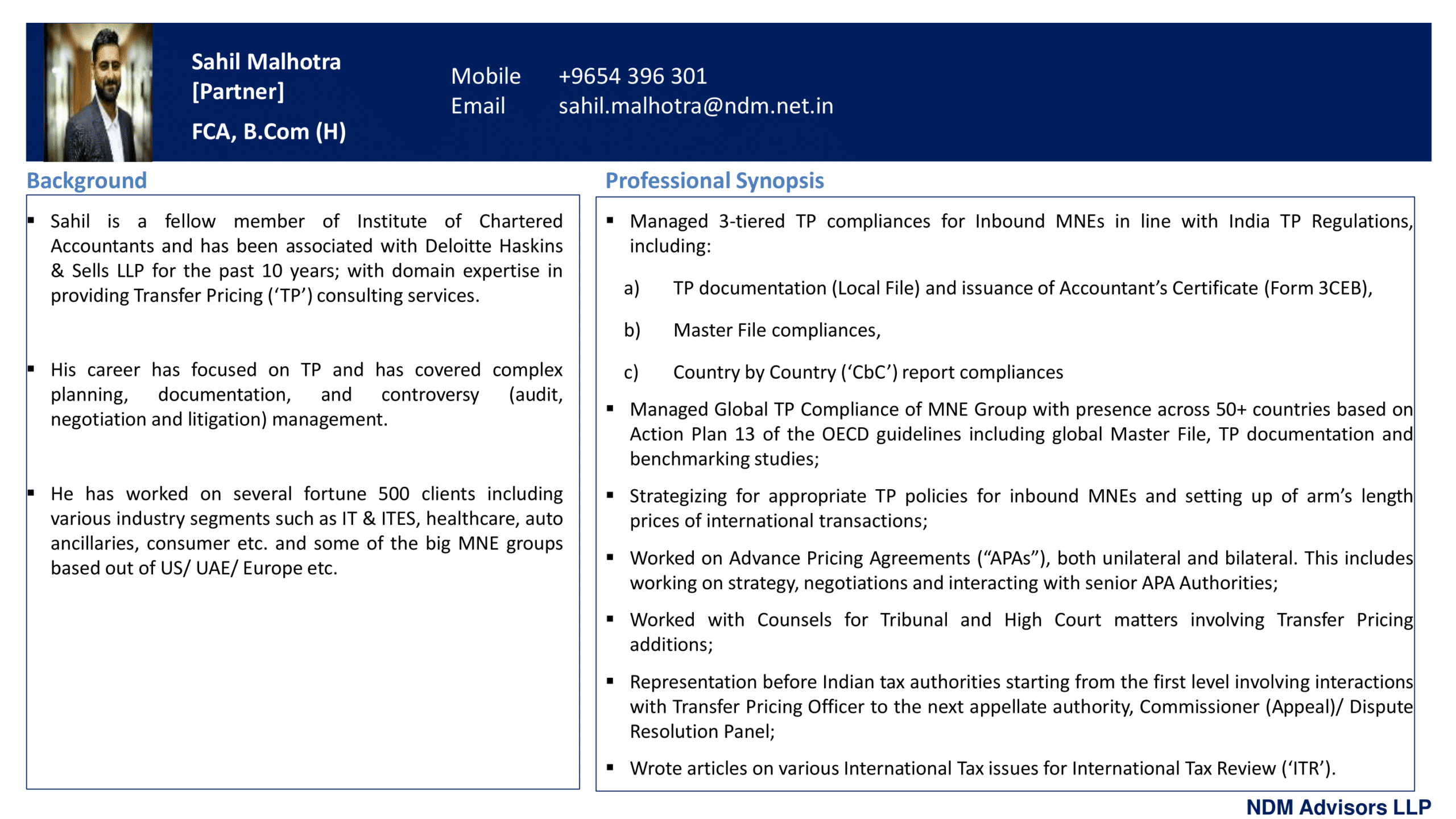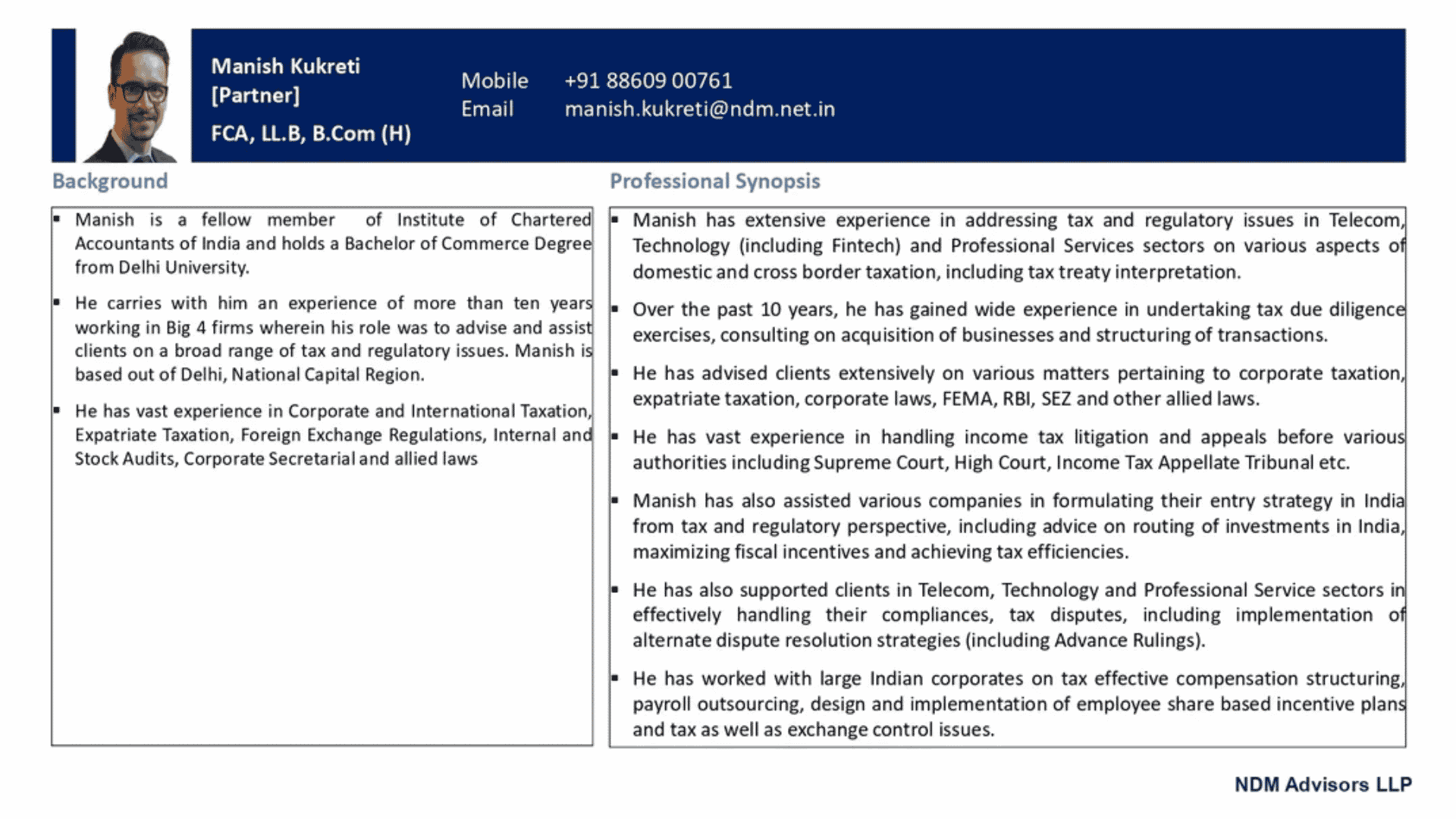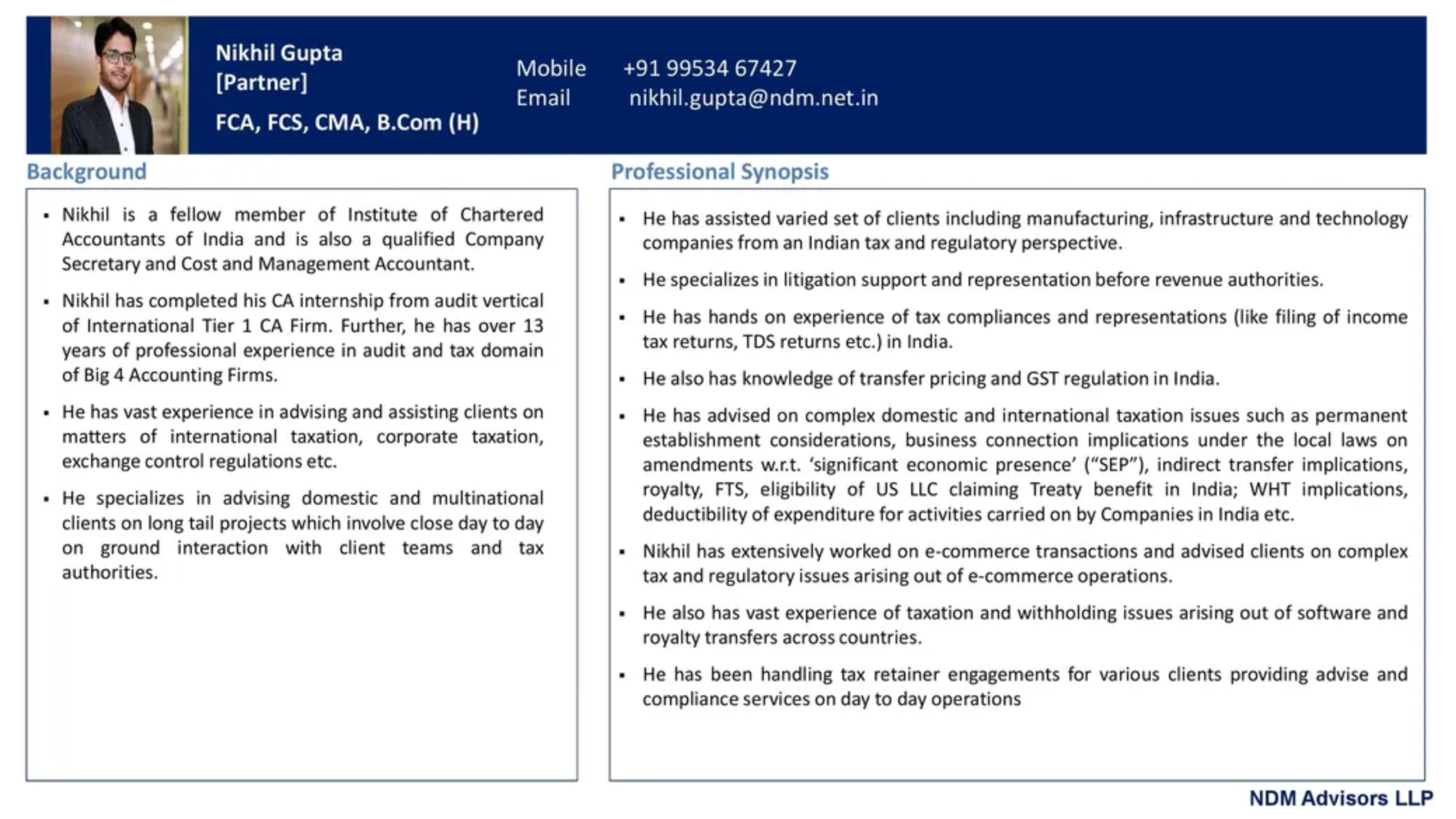Intragroup Services: Taxability Of Reimbursements To Overseas Entity

Opening of international boundaries have led to the massive growth of economic groups worldwide in the form of various corporate entities in the domestic as well as international markets. This has further resulted in the widespread increase of intra-group agreements among these corporate entities in order to serve the group companies through a centralized manner thereby leading to enhancement of operating and cost efficiencies. Different groups name these agreements differently like cost sharing agreement, group service charge, etc. however, the essence of these agreements are same i.e. to provide non-core management services like administrative, IT, HR, brand building etc to all the group companies in a centralized manner. Also, in many cases, one of the primary purposes of the holding company is to offer a centralized management service to group members. These intra-group agreements should not be mistaken with other group agreements wherein actual business transactions are being undertaken as clubbing of both the types of agreements may lead to different tax consequences.
This is beyond doubt that these group arrangements provide necessary cost and operating efficiencies to the group in addition to standardization of processes, however, the taxability of the payments made under these arrangements have always been a subject matter of litigation between the taxpayers and the tax authorities. Whereas many groups resort to such arrangements in order to bring in efficiency and standardization in the operating procedures, there might be groups which are using these transactions (of course, also other transaction types as loans etc.) to repatriate funds from India without paying optimum taxes. Hence, it is of vast importance to both taxpayers as well as tax authorities to have a better understanding of these intra-group agreements from tax perspective. It is also to be noted that these intra-group agreements are transactions between related parties, thus transfer pricing regulations will also come into picture.
Recently, Delhi bench of Income Tax Appellate Tribunal (‘ITAT’) in the case of ITO (Intl Taxation) Vs. Asian Hotels North Ltd. (ITA no 210/Del/2016) had the opportunity to adjudicate on the taxability of provision of certain centralized services by the non-resident group company to an Indian company. In this case, the taxpayer (Indian resident) was involved in running a hotel in India under the name and style of Hyatt Regency as a franchise of Hyatt International Asia Pacific Limited known as Hyatt. The taxpayer had entered into an agreement with Hyatt wherein there were various other services which were to be provided by other affiliates of Hyatt. One such affiliate of Hyatt named HCSL used to provide centralised services outside India to one worldwide Hyatt Group of Hotels, who work under the supervision and control of Hyatt. HSCL performed sales and marketing on behalf of all hotels affiliated to the Hyatt chain. The said chain marketing services included business and sales promotion, advertising, publicity and public relations, reservation system across the globe, conduct marketing surveys and studies to standardize and improve the facilities in the hotels of the affiliates across the world, all other such activities aimed at protecting and promoting the mutual interest of the affiliates as well as to benefit the guests with better services and facilities. The cost of such expenses incurred by HCSL was allocated amongst the participating Hyatt Hotels worldwide on cost basis without having any element of profit.

However, the Assessing officer treated the payment under the aforesaid agreement as royalty under the provisions of the Act and also refused to accept that such payment was in the nature of ‘reimbursement’ by observing that there was no one-to-one relationship between expenditure incurred by HCSL and consideration paid by the taxpayer. On appeal to Commissioner of Income Tax (Appeals) [‘CIT(A)’], CIT(A) adjudicated the appeal in favour of the taxpayer by holding that the payments were being made in order to develop the global brand ‘Hyatt’ and the AO had himself accepted that there was no one to one relationship between the services rendered by HCSL and the payment made by the taxpayer. Further, the payment so made was restricted to the actual cost of providing such services and hence, cannot be brought to tax in India. On appeal by the tax authority, the Hon’ble ITAT, while upholding the order of CIT(A), held that the marketing services were being remunerated on cost to cost basis and there was no proof that such marketing services were being provided to the taxpayer only. Accordingly, the said charges cannot be said to be taxable in India.

It is also pertinent to note that the hon’ble Delhi high court in the case of CIT Vs Expeditors International (India) (P.) Ltd. has also upheld that the reimbursement of global management expenses are not liable to tax in India. However, there are certain rulings as well wherein on the basis of peculiar facts pattern, it has been held that the services rendered by overseas group company to the India company classify as Fees for technical services under the provisions of the Income tax Act, 1961 read with relevant double taxation avoidance agreement and is liable for taxation in India.
Having considered above rulings, it can be inferred that cost-to-cost reimbursement of expenses incurred by a foreign affiliate is not liable to tax in India. However, one should not read the aforesaid principle as a blanket rule and facts of each case should be analysed in detail. For example and stretching a scenario using the lenses of income tax authority, it can be alleged that in order to avoid tax implications, a taxpayer has routed the payment of an expenses through a group company located abroad showing the payment as merely a reimbursement to the group company. The remission of amount to the group company for finally making payment to the third person may be considered as payment to third party and might not be treated as reimbursement of expenses. This principle has been upheld in one the rulings of hon’ble Mumbai tribunal .
From Indian taxpayer’s perspective, while claiming such reimbursements as allowable expenditure, it is also necessary that the underlying services are used for the purpose of the carrying on of business. The taxpayer should have robust documentation to substantiate the services have been received and are beneficial/ useful for the business of the taxpayer.

From the above, it would not be unreasonable to conclude that there are no fixed principles for determining the taxability of reimbursements in India. The intention of the parties involved along with the underlying documentation maintained to substantiate the intention and the nature of expenditure are the critical factors to determine the taxability of the reimbursements.
In case of queries, drop us a line on communications@ndm.net.in
Have Any Question?
Send us a message and tell us more about your business and financial goals. We will get back to you soon to schedule a consultation.
- +91 9873210394
- Communications@ndm.net.in


















